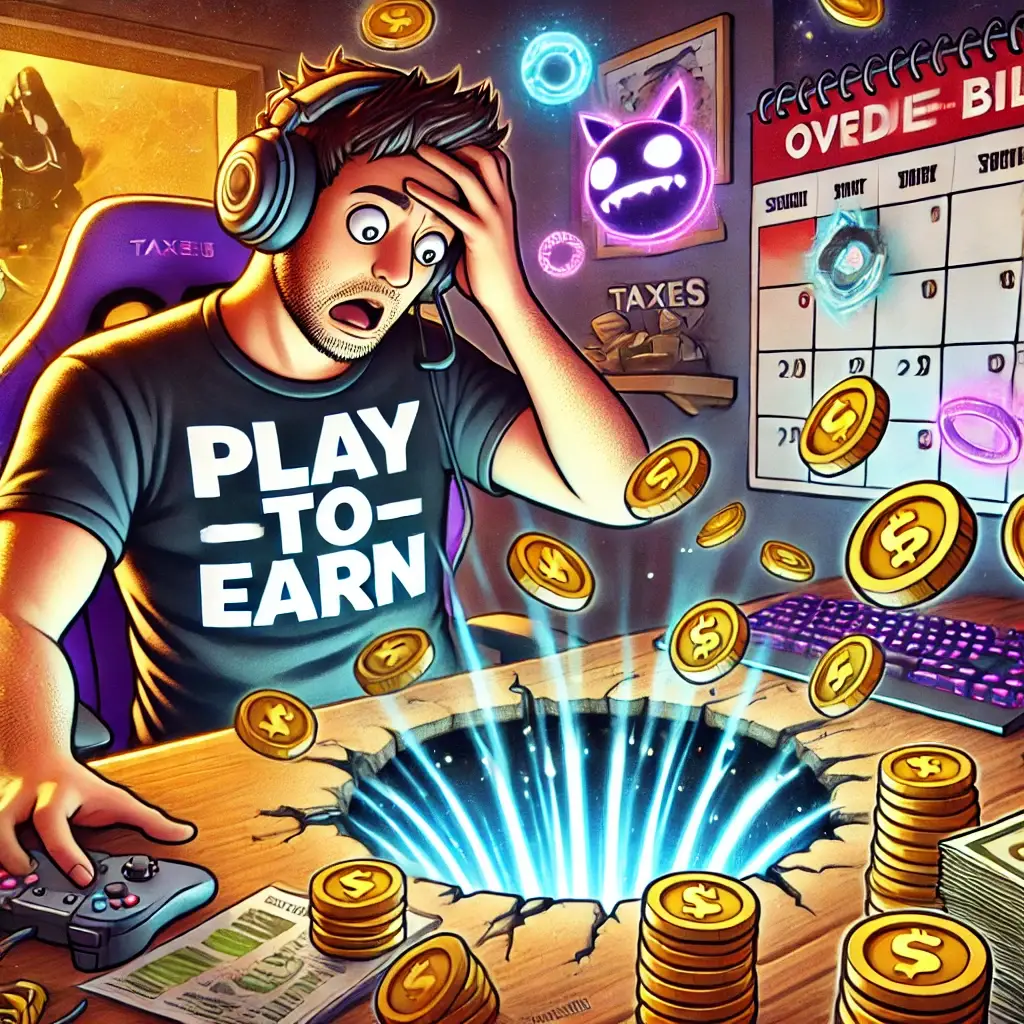Let’s face it: the Play-to-Earn (P2E) revolution sounded like the dream. “Play games, earn money,” they said. “Financial freedom through gaming,” they promised. But somewhere along the way, the dream turned into a very peculiar nightmare—one that feels oddly similar to filing taxes.
Imagine this: you’ve spent hours grinding, collecting rare NFTs, and earning tokens that are supposed to change your life. Then the game’s economy tanks faster than a meme coin on a bad tweet, and suddenly, you’re calculating your losses like an accountant in April.
The most ironic part? Much like taxes, losing in P2E feels inevitable. Missed out on a lucrative quest? That’s a capital loss. Spent hours farming a token that plummeted in value overnight? That’s depreciation, baby.
Even the vocabulary mirrors the dreaded tax season. “Yield farming” might as well come with a W-2 form. And let’s not forget gas fees—because nothing screams “gaming revolution” like paying a surcharge to move your virtual assets, right?
But hey, it’s not all bad. At least when you lose in P2E, you’re doing it for “fun” (or so you keep telling yourself). Plus, your tax preparer will be impressed with how detailed you’ve become at tracking crypto transactions. “Wait, what’s this $500 loss labeled as 'Dragon Sword Flip Gone Wrong’?” they’ll ask.
In the end, Play-to-Earn is a lot like life: full of highs, lows, and the inescapable feeling that someone, somewhere, is taxing you just for trying.
